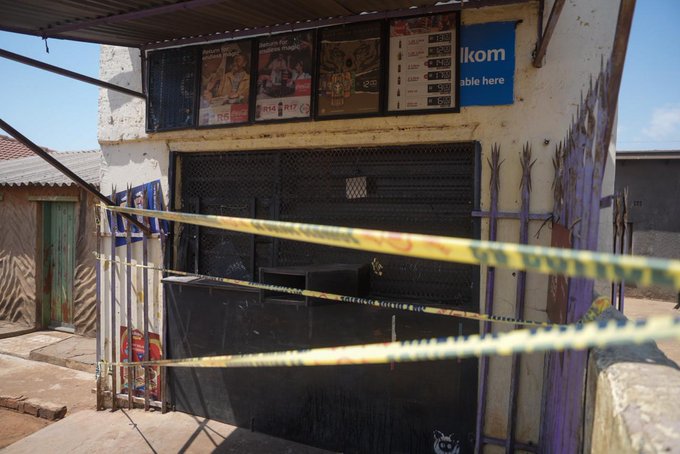
The City of Cape Town has reported receiving over 6,000 applications for Certificates of Acceptability (COA) for spaza shops.
This surge in applications follows President Cyril Ramaphosa’s call on 15 November for all spaza shop owners across the country to register their businesses to enhance food safety and public health compliance.
A Response to Foodborne Illness Outbreak
The president’s directive came in the wake of a tragic outbreak of foodborne illnesses that claimed the lives of more than 20 children. The deaths were linked to contaminated snacks purchased from local spaza shops, prompting a nationwide crackdown on food safety.
In addition to the fatalities, over 800 food poisoning incidents were reported across all provinces. This alarming trend highlighted the urgent need for stricter regulation and monitoring of food vendors, particularly spaza shops that serve as essential food sources in many communities.

Compliance Measures by the City
The City of Cape Town has intensified its efforts to ensure that all food premises, including spaza shops, adhere to health and safety standards. According to Patricia Van der Ross, the City’s Mayoral Committee Member (MMC) for Community Services and Health, issuing a COA requires stringent checks:
“COAs are only awarded on submission of all relevant documentation and a physical inspection to ensure that the premises comply with legislative requirements,” Van der Ross stated.
Once issued, spaza shops are subject to routine inspections to verify ongoing compliance. These inspections aim to maintain high standards of food safety and mitigate the risk of future incidents of food contamination.
Registration Deadline and Requirements
Spaza shop owners have been given until 25 February 2025 to register their businesses and obtain the necessary certification. The COA process involves:
- Document Submission: Traders must provide all required documentation, including proof of ownership, food safety training certificates, and business registration details.
- Physical Inspections: Health inspectors visit the premises to assess their adherence to hygiene and safety standards.
- Routine Monitoring: After the COA is issued, regular follow-ups ensure continued compliance with regulations.
Van der Ross emphasized the importance of these measures, noting that they play a vital role in protecting public health.

Action Against Non-Compliant Premises
The City has also pledged to take decisive action against food premises that pose risks to public safety. Enforcement teams are actively conducting inspections and shutting down operations that fail to meet the required standards.
Van der Ross explained:
“After a certificate of acceptability is issued, all premises are routinely monitored to ensure ongoing compliance. These visits ensure that standards are maintained.”
By cracking down on non-compliant spaza shops, the City aims to create a safer environment for consumers and prevent incidents like the recent foodborne illnesses.
The Importance of Spaza Shops in Communities
Spaza shops are integral to many South African communities, particularly in underserved areas where access to large retailers may be limited. These small businesses provide essential goods and services while contributing to local economies.
However, the recent food safety crisis has underscored the need for stricter oversight to ensure that these shops operate responsibly and prioritize the well-being of their customers.

National Implications
The focus on spaza shop compliance extends beyond Cape Town. Across South Africa, municipalities are working to implement the president’s directive, emphasizing food safety as a top priority. This nationwide initiative reflects a broader commitment to public health and the sustainability of small businesses.
Looking Ahead
With the February 2025 deadline approaching, the City of Cape Town is urging spaza shop owners to take the necessary steps to register their businesses and secure their COAs. The City’s proactive approach, combined with routine inspections and enforcement actions, aims to build a safer and healthier food landscape for all residents.
By fostering collaboration between local authorities, traders, and communities, the City hopes to prevent future tragedies and ensure that spaza shops continue to serve as trusted sources of food and convenience in neighborhoods across Cape Town.
#City #Cape #Town #received #applications #spaza #shop #certificates #acceptability



